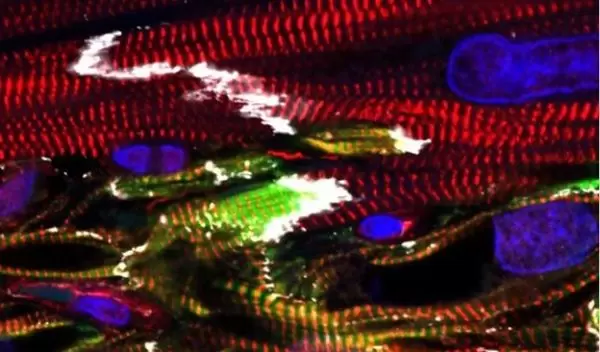
Combining cell types may lead to improved cardiac cell therapy following heart attack
Researchers at the University of Wisconsin–Madison and other institutions have harnessed a combination of lab-grown cells to regenerate damaged heart muscle.
The study, published in Circulation, addresses major challenges of using heart muscle cells grown from stem cells and takes an important step toward future clinical applications. The research was supported in part by the U.S. National Science Foundation.
Previous research has replaced muscle in the hearts of mammals, but researchers have struggled to bring treatments to the clinic, in part because the implanted cells haven't developed enough life-sustaining blood vessels to survive very long.
The new study confronted that challenge by combining the lab-grown muscle cells with stem-cell-derived endothelial cells ― the cells that line blood. The combination therapy also holds promise for tackling arrhythmia, another significant obstacle in heart regeneration with stem-cell-derived cells.
The researchers examined the therapeutic effect of co-transplantation in mice and nonhuman primates undergoing a heart attack.
The team would like to conduct further studies to refine their cell transplantation protocols and assess long-term safety and efficacy. Promising results may lead to clinical trials with human patients with heart disease, a leading cause of death around the world.
